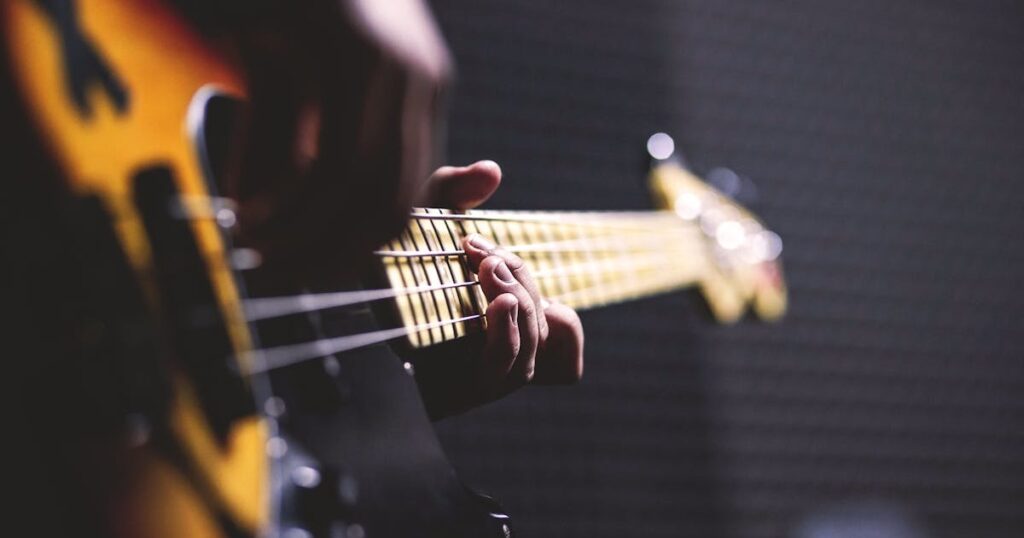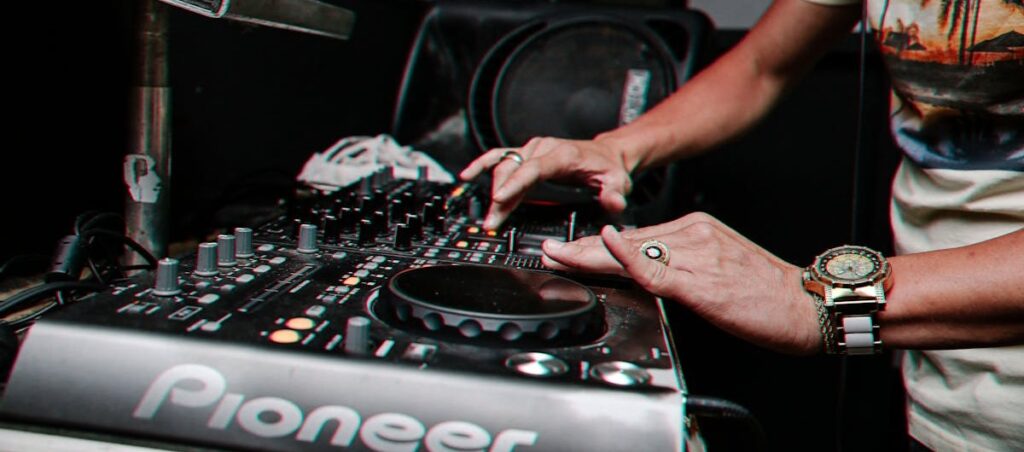Key Takeaway: Using a bass guitar with a guitar amp can lead to tonal challenges and potential damage. Understanding the differences between amp types, avoiding common pitfalls, and employing proper techniques ensure a richer sound and longevity for your equipment.
As a musician, it’s important to have the right equipment for your instrument. This holds true for bass guitar players as well. While most people would assume that any amplifier can be used for both guitars and bass guitars, this is not always the case. In fact, using a guitar amp for a bass guitar can lead to some serious issues.

In this article, we will explore the differences between bass amps and guitar amps, the potential dangers of using a guitar amp for a bass guitar, and provide tips on how to avoid damaging your amp. We will also answer the question of whether or not you can connect a bass to a guitar amp.
So, if you’re a bass guitar player looking to use your guitar amp for practice or performance, keep reading to find out more.
Bass Amps vs. Guitar Amps: What’s the Difference?
The main difference between a bass amp and a guitar amp is in their frequency response. Bass guitars produce lower frequencies than regular electric guitars, so they require an amplifier that can handle those low frequencies without distortion.
On the other hand, guitar amps are designed to enhance the mid and high frequencies of the guitar. Bass amps also tend to have larger speakers and more wattage compared to guitar amps. This is because low frequencies require more power to produce sound effectively.
Additionally, bass amps often have a built-in compressor, which helps even out the volume of bass notes. This is important because bass notes can vary in volume due to their longer sustain.
Dangers of Playing Bass with a Guitar Amp
Using a guitar amp for a bass guitar may seem like an easy solution, especially if you don’t want to invest in a separate amp. However, this can lead to some serious issues. The main problem is the risk of damaging your amp and speakers.

Since bass guitars produce lower frequencies, they require more power to be amplified effectively. A guitar amp, which is not designed for low frequencies, will struggle to handle the power needed for the bass guitar. As a result, the amp and speakers can overheat and potentially blow out. This can also cause permanent damage to your equipment.
Tips for Avoiding Amp Damage
If you’re determined to use your guitar amp for a bass guitar, there are some tips you can follow to minimize the risk of damaging your equipment:
- Use a high-pass filter: A high-pass filter cuts off the lower frequencies and allows only the higher frequencies to pass through. This will prevent any low frequencies from reaching your amp and causing potential damage.
- Keep the volume low: Lowering the volume on both your bass guitar and amp can help reduce the power going into your amp. This is especially important when using a guitar amp for your bass.
- Use an external speaker: If you have access to an external speaker, it’s best to use that instead of the built-in one on your amp. This will help distribute the workload and prevent your speakers from blowing out.
Can You Connect a Bass to a Guitar Amp?
The short answer is yes, you can technically connect a bass guitar to a guitar amp. However, as mentioned earlier, doing so can lead to potential damage to your equipment, including the amp itself.
Guitar amplifiers are designed to handle the higher frequencies that guitars produce, while bass guitars generate lower frequencies that may overwhelm the amp’s components. This mismatch can result in overheating or distortion, which could ultimately harm your gear.

It’s really not recommended to use a guitar amp for a bass guitar unless you find yourself in an emergency situation, such as when your bass amp unexpectedly breaks down during a performance. In such cases, you might be able to get by temporarily, but be cautious about the volume levels to minimize any risk.
While there are some precautions you can take—like using an EQ pedal to adjust the frequencies or keeping the volume low—it’s still a gamble. Investing in a dedicated bass amp is the best route for optimal sound quality and to ensure the longevity of your equipment.
A bass amp is specifically designed to handle the lower frequencies, providing a richer, more balanced sound that will enhance your performance without the worry of damaging your gear.
FAQs
Can I use guitar pedals with a bass amp?
Yes, you can use guitar pedals with a bass amp. However, it’s important to check the pedal’s frequency range and make sure they are suitable for bass frequencies.
Can I use a bass guitar on an acoustic guitar amp?
No, it is not recommended to use a bass guitar on an acoustic guitar amp. Acoustic amps are designed differently and may not have the power or capability to handle the low frequencies of a bass guitar.
Do I need different cables for connecting a bass to a guitar amp?
No, you can use the same cables for both guitar and bass amps. However, it’s important to check that they are high-quality and can handle the power of a bass guitar.
Should I upgrade my guitar amp to a bass amp?
If you plan on playing bass regularly, it’s recommended to invest in a separate bass amp for optimal sound quality and to prevent any potential damage to your equipment.
Conclusion: bass guitar on guitar amp
In conclusion, using a guitar amp for a bass guitar is not recommended due to the differences in frequency response and potential risks of damaging your equipment. While it may seem like an easy solution, investing in a separate bass amp will ensure better sound quality and longevity of your equipment.
We hope this article has provided helpful information for bass guitar players looking to use their guitar amp. Happy jamming! The next time you’re considering using a guitar amp for your bass, remember the potential dangers and follow our tips to avoid any damage.
